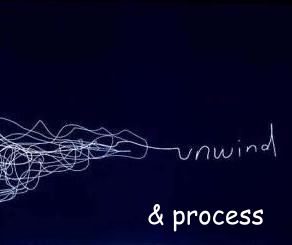
The concert is over...the workshop is done...NOW WHAT?
When I worked as a therapist, I did group therapy, and I had a team. Sometimes two or three people assisting in different ways, sometimes just one person. After EVERY session, we would do what we called, "processing the work." The team (and any students that might have been observing) would ask questions: "Why did you do that? What made you think of that? Why didn't you...?" We would discuss and dissect what happened in the session; what worked and what didn't, and why. This was the most important part of the learning and growth process; more important than much of the classroom learning.
I miss that process.
Working as a solo performer or workshop leader can be exhausting. But not so much because you are on stage or in front of your group alone, but because afterwards, you are alone. What do you do with all the excitement and energy from performing or teaching? One needs time to both unwind, and to process the work that was done. You can do some of this by yourself, but I believe that just as storytelling is about "connecting" with others, you need to connect in a different way after the story or the class. Connect with yourself, your colleagues, and with the work that was done.
This last weekend I did a workshop on creative language at the Whole Life Center at Shadow Rock. There were nineteen participants and the two hours went by very quickly. I was feeling very good about the work. Normally, I would have gathered my stuff and just driven home, with only my own thoughts about how things went. This time, though, I sat down with Judy Schwiebert, the coordinator, and we talked.
We talked for an hour! I was able to take a deep breath after the session and unwind. We talked about the workshop, the people, the exercises, and what might have improved it a little. It helped to ground me, to come down a bit from the "high" of teaching (the only thing I love more than telling).
It was invaluable.
It's more than appreciations or the handshakes and "thank yous" from the group. Its more than merely reading the evaluation sheets. Like storytelling, it's a live interaction between me and at least one discerning member of my audience.
So, next time, bring along a friend and/or colleague to talk with afterwards. Let them help you unwind and take a deep breath. Have a dialogue with them. What worked? What didn't? What would make it better? Let them help you scrutinize and process your work...for learning and growing!
